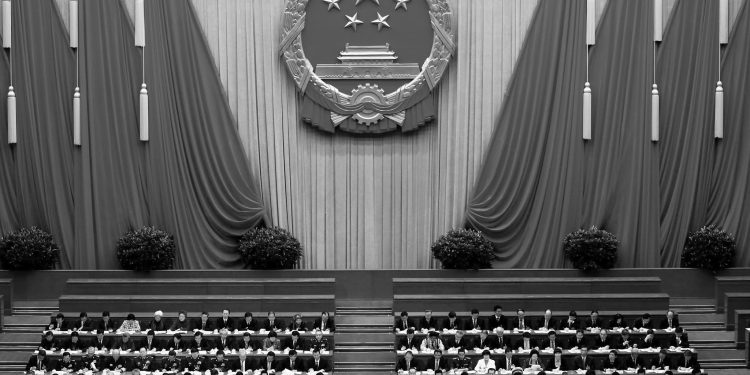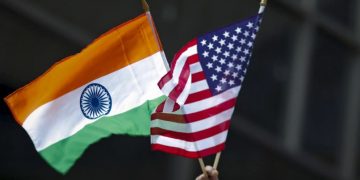Yuen YuenAng
Normally, a single epidemic, even if mishandled, would not break the Chinese regime. Over the past four decades, the CPC has weathered numerous crises, from the 1989 Tiananmen tragedy and the 2002-03 SARS epidemic to the 2008 global financial crisis.
In contemporary China, profound political transformation can – and has – taken place in the absence of regime change or Western-style democratisation. The starkest example is the period of “reform and opening” that began in 1978 under Deng Xiaoping. Although Deng rejected multiparty elections, he fundamentally changed the direction of the Communist Party of China (CPC), as well as the distribution of power within it.
The coronavirus epidemic that began in Wuhan in December 2019 may augur a similar historic turning point. The outbreak of what is now called COVID-19 represents more than just a passing moment of stress for the CPC. The world should be prepared for what could come next.
Normally, a single epidemic, even if mishandled, would not break the Chinese regime. Over the past four decades, the CPC has weathered numerous crises, from the 1989 Tiananmen tragedy and the 2002-03 SARS epidemic to the 2008 global financial crisis. Some of the regime’s critics have long predicted its imminent demise, only to be proven wrong. Before President Xi Jinping, the Chinese style of governance was adaptive and decentralised.
This time is different. Since coming to power in 2012, Xi has tightened political control at home and projected superpower ambitions abroad. These policies have unnerved Chinese private investors, alarmed Western powers, and sharpened tensions with the United States, all of which have contributed to a broader economic slowdown.
The COVID-19 outbreak has added an additional source of stress and unpredictability to the regime’s mounting challenges. As the epidemic persists, China will struggle to reopen for business, bringing even stiffer economic headwinds as small- and medium-size enterprises fail, workers lose jobs, and inflation picks up. While the Chinese leadership is highly adept at solving one crisis at a time, it has rarely had to confront so many near-existential crises at once.
In a recent commentary, Kevin Rudd, a former Australian prime minister who is now president of the Asia Society, argued that “the crisis, once resolved, will not change how China is governed in the future”.But that prognosis is too optimistic. Indeed, cracks are already appearing in Xi’s supreme leadership.
For example, at the peak of the public outrage over the government’s initial cover-up of the outbreak, Xi disappeared from public view. After his meeting with the director-general of the World Health Organization, TedrosAdhanomGhebreyesus, on January 28, he didn’t resurface until his state meeting with Cambodian Prime Minister Hun Sen February 5. For a leader who normally dominates China’s news cycle every day, Xi’s absence amid a national panic was conspicuous, and led some Chinese observers to speculate that his grip on power may be in peril.
If that seems unthinkable, it is worth remembering that the past years have produced events that few anticipated. Who predicted, for example, that an American real-estate mogul would face off with a Chinese princeling in an earth-shaking superpower rivalry, or that China might replace the United States as a champion for capitalist globalisation? The current moment of precariousness could well give way to more profound political change.
Three possibilities stand out. The most extreme, worst-case scenario is regime collapse. China bashers who read that sentence should not gloat, because the sudden dissolution of an authoritarian regime does not necessarily lead to democratisation; in many cases, it leads to civil war, as we saw in Iraq after the United States forcibly removed Saddam Hussein and as we see today in post-Qaddafi Libya. A violent power struggle within China would be catastrophic for the entire world.
Fortunately, this scenario is unlikely. Although China is under unprecedented stress, its economy has not come to a standstill. As Shang-Jin Wei of Columbia University pointed out, China’s highly developed e-commerce industry allows residents to continue shopping from home. And while tens of thousands of Chinese are infected with the virus and many more are furious at the government, the vast majority of the population is nowhere near desperation.
The second scenario is a change in leadership at the highest level. Xi cannot avoid blame for the backlash against his restrictive domestic policies and assertive actions abroad, which had already begun to undercut support for him even before the COVID-19 epidemic. With the death of Li Wenliang, a doctor who was rebuked by state authorities for warning others about the virus, the failings of Xi’s top-down approach have been laid bare.
In principle, Xi’s abolition of constitutional term limits allows him to stay on as president for life. But whether he actually will remain in office after his current term ends in 2022 is now an open question.
Owing to the concentration of power in the Chinese system, the paramount leader has an outsize impact on all spheres of society, as well as foreign policy. If a new leader were to take over in 2022 – or even before then – the most likely outcome would be a reset of all of Xi’s policy priorities, forcing the rest of the world to revisit its thinking about China and its global role.
In the third scenario, Xi clings to his post, but it is hollowed out and power shifts over to various other competing factions. Such an arrangement would not be without precedent. After the Great Leap Forward, Mao Zedong’s fanatical campaign in 1958-62 to “catch up with Britain in ten years”, killed 30 million peasants, Mao was forced into retirement but remained paramount leader in name. (Later, he would stage a comeback, ushering in another decade-long disaster: The Cultural Revolution).
It is already clear that Chinese politics and governance will not be the same after the COVID-19 outbreak. The myth that Xi and his supporters have sustained about the virtues of centralized control has been demolished. Li’s parting words – “A healthy society should not have only one voice” – will remain etched in the minds of hundreds of millions of Chinese, who have seen for themselves that censorship can endanger their lives.
©project syndicate
Yuen YuenAng, a professor of political science at the University of Michigan, Ann Arbor, is the author of How China Escaped the Poverty Trap and the forthcoming China’s Gilded Age.






































